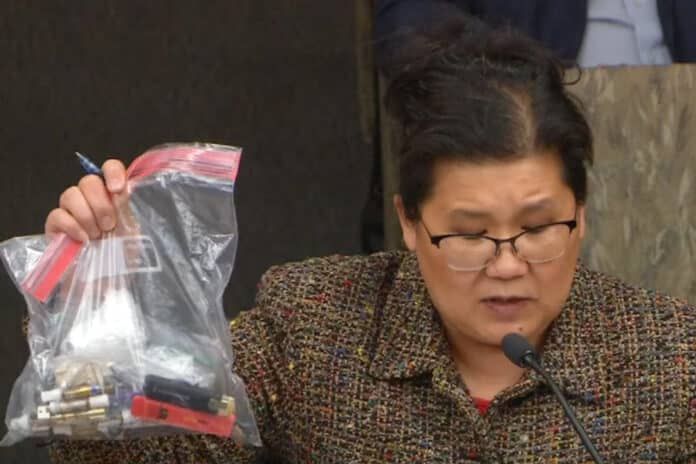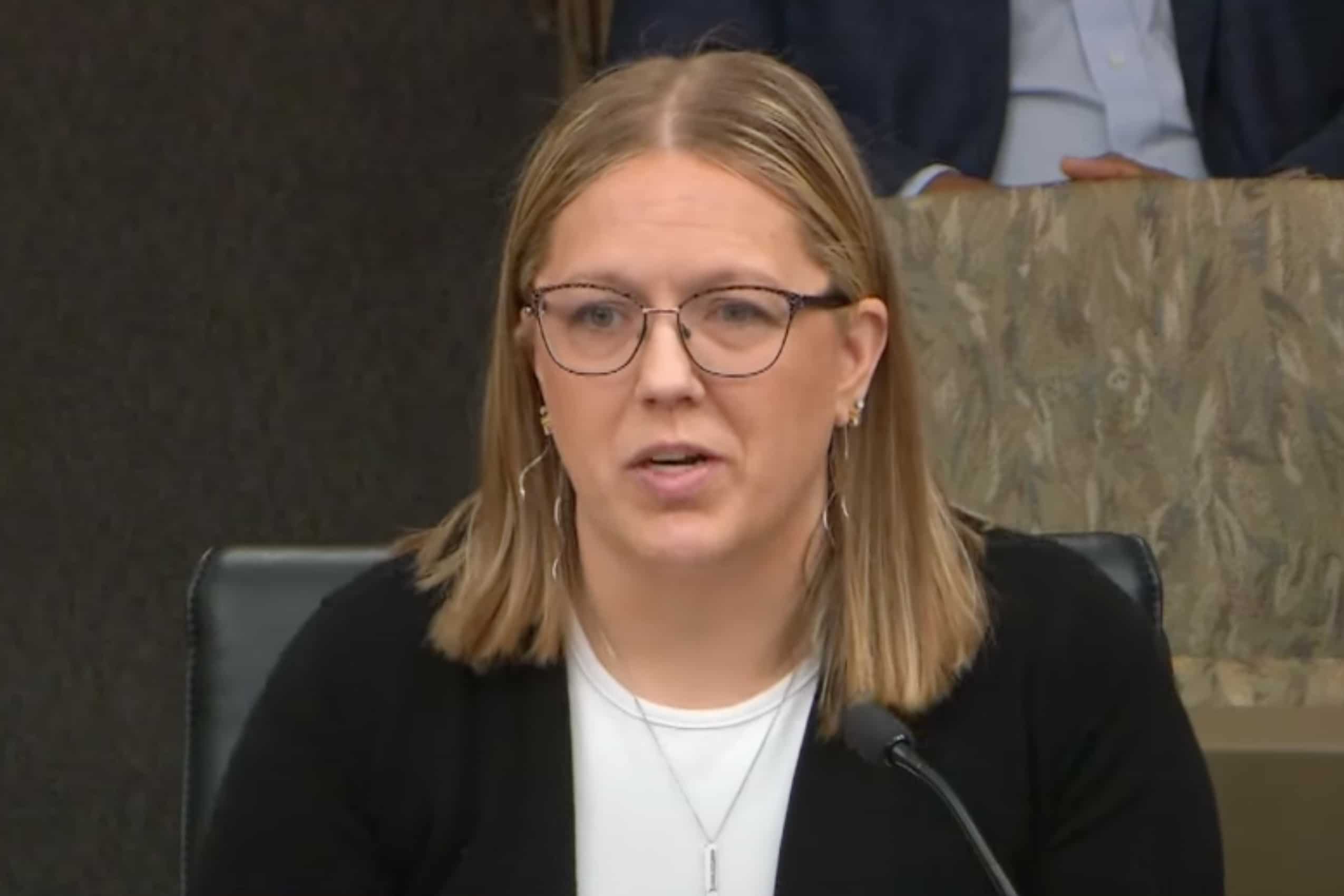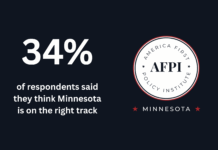
Almost a year following the Minnesota legislature’s passage of a bill to legalize the use and sale of recreational marijuana, lawmakers are continuing to tie up loose ends in a schema that’s still unfolding.
While people are now allowed to consume cannabis for recreational purposes, the provisions outlined in the bill Gov. Tim Walz signed last May to allow for its sale have yet to come into effect.
And as the fledgling Office of Cannabis Management continues to be without a permanent director, legislators are bringing new bills — in a piecemeal fashion — as issues related to legalization bubble to the surface.
On Monday, the House Commerce Finance and Policy Committee heard seven bills related to the new landscape where consumption of low potency hemp edibles and smokable marijuana have been largely decriminalized.
One such bill, HF3766, would allow Minnesotans enrolled as patients in a state-regulated medical cannabis registry to assign a “caregiver” of their choosing to grow up to 16 cannabis plants for them. The designated caregiver would not need a license to cultivate the cannabis, according to the language of the bill, and could grow the plants at a patient’s own residence or the residence of the caregiver.
The current recreational cannabis law that went into effect last August allows anyone over the age of 21 to grow up to eight cannabis plants at their residence, with no more than four of those plants being mature (i.e. flowering). But Rep. Jess Hanson said those who rely on medical marijuana often have conditions or circumstances that don’t allow them to grow their own.
“It’s important that we do not leave Minnesotans on our medical (cannabis) program out of the opportunity to benefit from homegrown cannabis, especially if they simply need help doing so,” said Rep. Hanson, DFL-Burnsville, who is authoring the bill.

“People with disabilities and conditions that qualify them to enroll in the medical (cannabis) program can only grow their own if they know how to, if they can afford to, or their condition or living situation allows them to or if they know someone who will gift them homegrown products,” Hanson continued.
Those testifying in support of the bill included Kayla Fearing, who said she is a cannabinoid educator who lives in Michigan but is originally from Minnesota.
“I’ve seen the success of the cannabis caregiver program in our neighboring state of Michigan since it began in 2021,” Fearing said.
Eleven other states have established cannabis caregiver programs for medical marijuana patients, but the spectrum of how those programs are regulated varies from state to state.
Michigan’s law allows caregivers to grow up to 72 plants.
While the bill was laid over for possible inclusion in omnibus legislation, Rep. Anne Neu Brindley, R-North Branch, was concerned that “caregivers” procuring cannabis for medical marijuana patients wouldn’t be held to medical regulatory standards that govern state-approved medical marijuana dispensaries, or commercial regulatory standards currently being developed by the Office of Cannabis Management.
“I would question whether or not trying these new things, and this craft industry, I would question whether caregivers are the best place to do that,” Neu Brindley said. “They’re not trained in this. We are treating this as medicine in this particular situation, so I would question whether this is the most appropriate way to move forward on that.”
Rep. Jeff Dotseth, R-Kettle River, was concerned the bill would allow for an individual who might be a designated “caregiver” for more than one medical marijuana patient to grow and cultivate up to 16 plants for each of the patients for which they have been named a “caregiver.”
Hanson said her proposal would allow for a “caregiver” to grow cannabis plants for up to six patients.
“We can certainly change that on this one if there is a concern about somebody having six times 16 plants (totaling 96),” Hanson said. “I can see where there is a concern there.”
Expanding qualifying medical conditions, banning flavored weed
Hanson is the author of another bill heard in the House Commerce Finance and Policy Committee on Monday that would give statutory protection to students, licensed professionals and renters from being punished or retaliated against for medical-related consumption of cannabis.
Another major change to the cannabis consumption landscape proposed on Monday came from Rep. Kaohly Vang Her. The third-term DFLer from St. Paul is sponsoring HF4789, which would give a health care provider the authority to prescribe cannabis for any medical condition they deem necessary to treat.
Current state law allows for a list of more than one dozen conditions or diseases to be included as a cannabis qualifying medical condition. It also allows for the commissioner of the medical cannabis program to sign off on a request from a patient that is outside that list.
Other bills heard by the committee on Monday include HF4251, which would prohibit the sale of flavored cannabis products “that are burned, inhaled or vaporized.” That does not include low-potency beverages or edibles that are “already legally sold on the market,” Her said.
“We know from commercial tobacco policy work that kid-friendly flavors are used to make commercial tobacco products taste better, look less harmful and are more appealing,” said Her, who sponsors the bill. “And we know that the cannabis industry is pulling from the same playbook. We’ve already seen schools struggling with flavored cannabis vapes in addition to flavored nicotine vapes that are being sold illegally.”
During her presentation of the bill, Her held up a plastic bag of flavored marijuana vape cartridges that she said area school officials had confiscated from students.
“Let’s make sure when the sale of recreational cannabis goes into effect, those flavored cannabis products aren’t on our shelves.”
The bill was approved by a unanimous voice vote and will next be heard in the House Health Committee. During the same hearing, the committee was divided over a proposal authored by Rep. Ethan Cha, DFL-Woodbury, to ban the sale of flavored tobacco, which was laid over.
Another bill heard proposes to make it illegal for someone to sell, give or furnish edible hemp products to an “obviously impaired person.”
Hank Long
Hank Long is a journalism and communications professional whose writing career includes coverage of the Minnesota legislature, city and county governments and the commercial real estate industry. Hank received his undergraduate degree at the University of Minnesota, where he studied journalism, and his law degree at the University of St. Thomas. The Minnesota native lives in the Twin Cities with his wife and four children. His dream is to be around when the Vikings win the Super Bowl.










